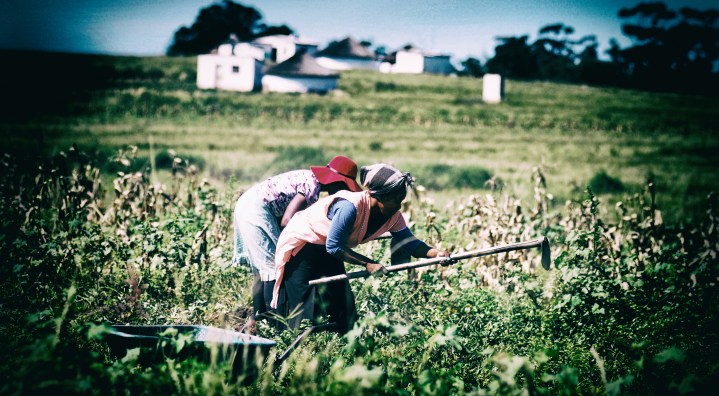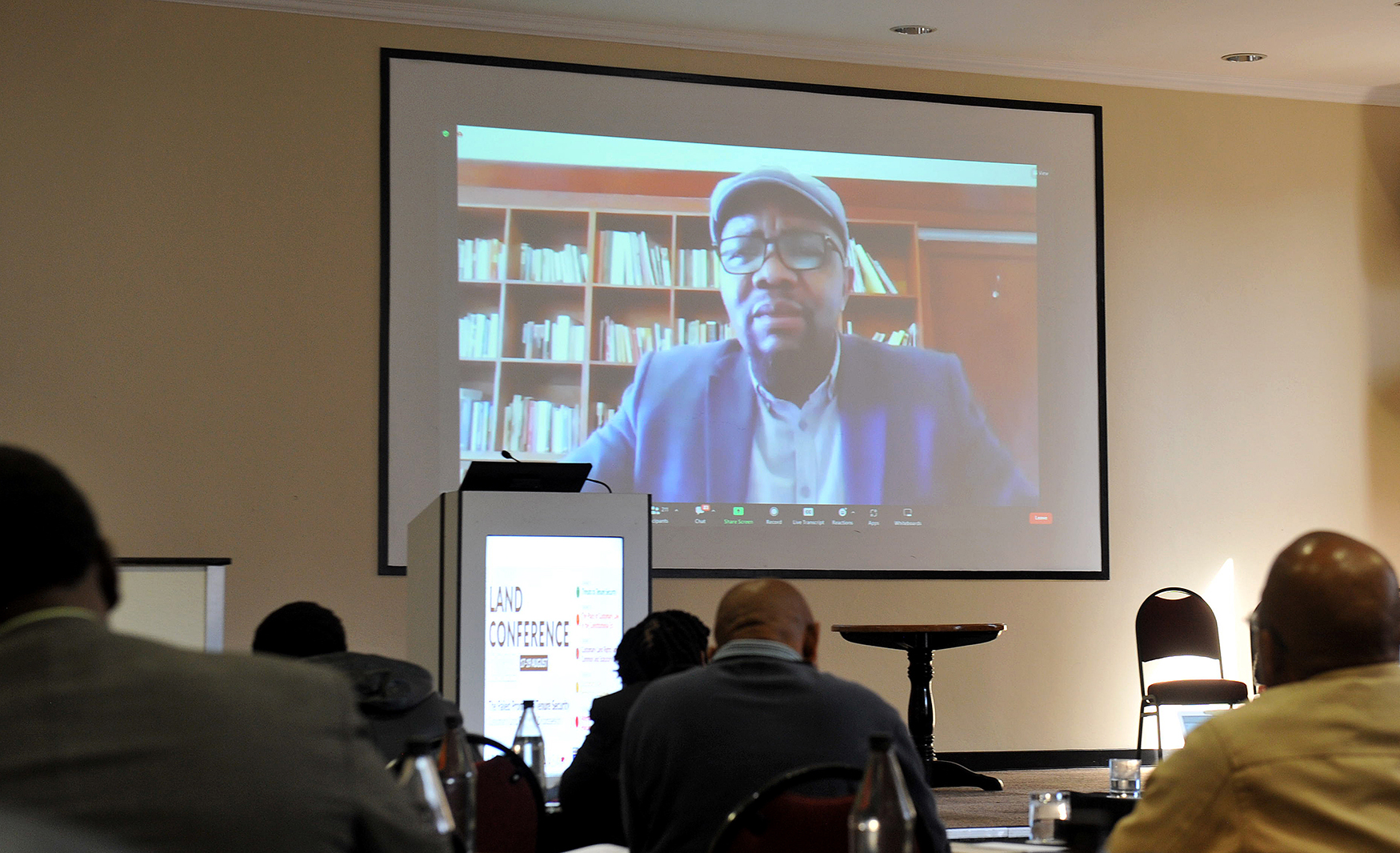POSSESSION AND DISPOSSESSION
Communal Land Rights Bill ignores community views, conference told

The community’s rights contained in the current format of the Communal Land Rights Bill would always be subservient to the power of traditional leaders, a conference on land rights has heard.
On Wednesday, the Land and Accountability Research Centre, Alliance for Rural Development, Institute for Poverty, Land and Agrarian Studies, Society Works and Politics Institute, and Legal Resources Centre hosted a hybrid conference which brought together local and international land rights activists and academics under the theme The Failed Promise of Tenure Security: Customary Land Rights and Dispossession.
The first day of the conference began with a remembrance ceremony for the activists across South Africa who have died while fighting for land rights.
One speaker was Grace Maledu, who is widely revered in land rights circles for instituting a successful court case against Itereleng Bakgatla Mineral Resources, challenging the legality of the company’s attempts to forcibly remove the community of Lesethleng from their land.
“When we saw our land being taken without being consulted, we knew we had to take the matter up in court. I was imprisoned for fighting for our land. I refused to be relocated,” said Maledu, speaking in her mother tongue of Setswana.
“I am not educated, but I understand what is right,” Maledu told the conference. She urged women to take up the fight for land by teaching their children that they should not just be interested in mining opportunities, but needed to also understand the importance of — and protect — the land, which was their heritage, and to return to farming so they could feed themselves.
“How are we going to live without the land? How are we going to be people without the land?” asked Maledu. She said that no amount of money would ever be enough to compensate people for being forcefully removed from their land.
In a recording for the conference, Sindiso Mniso Weeks, an associate professor of law and society at the University of Massachusetts Boston, said that to address the issue of land within a constitutional framework, there needed to be an examination of the possibility of amalgamating customary and common law, pointing out that at times customary law was not recognised by the South African legal system.
She cautioned that amalgamation would require a radically transformed judiciary that would seek to better understand customary law and draw from both systems.

Professor Sonwabile Mnwana speaks at the land rights conference in Braamfontien, Johannesburg on 17 August 2022 (Photo: Denvor de Wee)
Promise of tenure
Addressing the conference on the security of tenure, Sonwabile Mnwana, a professor of sociology at Rhodes University, said the promise of tenure was among the key issues in South Africa’s democracy. During the struggle for liberation, there was a promise that the land would be shared among those who worked it.
Visit Daily Maverick’s home page for more news, analysis and investigations
Mnwana said that land conflict was the outcome of dispossession and racial inequality in South Africa and that mining had led to people living on land precariously as they never knew when their land would be taken away for the purposes of mining.
Poverty and inequality were directly related to property rights, land and land-based resources, and the denial of property rights was influenced by the demands of migrant labour, said Mnwana.
Amadiba Crisis Committee
Amadiba Crisis Committee spokesperson Nonhle Mbuthuma said: “The mining companies never come to us as landholders, they always go to government, who give the go-ahead, which means we are not in control — government is in control.”
Indunas, said Mbuyhumba, regarded land as a saleable commodity and did not respect laws that required community consultation.
“Decision-making authority is an intrinsic part of property rights,” veteran land rights activists and former director of the Land and Accountability Research Centre, Aninka Claassens, told the conference.
She said there was a breakdown in land administration and that the Communal Land Rights Bill needed a more robust legal system in order to be enforced. The community’s rights contained in the bill’s current format would always be subservient to the power of traditional leaders over land.
Traditional leader status vs property rights
However, Claassens felt it was unlikely the drafters of the bill would go back to the drawing board as the debate had now become about the status and power of traditional leaders as opposed to the property rights at stake. There was, however, a glimmer of hope because of the appeal against the Ingonyama Trust judgment.
Land rights activist and lawyer Tembeka Ngcukaitobi said passing the bill in its current form would be unconstitutional. He said the bill seemed to assume that land in communal areas was actually state land and could be controlled by traditional leaders. This was a historical problem because since the Native Administration Act of 1937 and the Native Trust and Land Act of 1936 the state had put chiefs between the government and the people and entrusted them with the control of land.
The Communal Land Rights Bill was “a regressive law” and “calcified” previously existing power relations such as patriarchy and the marginalisation of black African people, said Ngcukaitobi, who closed the first day of the conference. He said the bill had to be scrapped and rewritten so that community views were reflected.
Customary law, he said, needed to be non-discriminatory, participative, non-gendered, inclusive of youth and non-patriarchal. DM/MC


















Comments - Please login in order to comment.